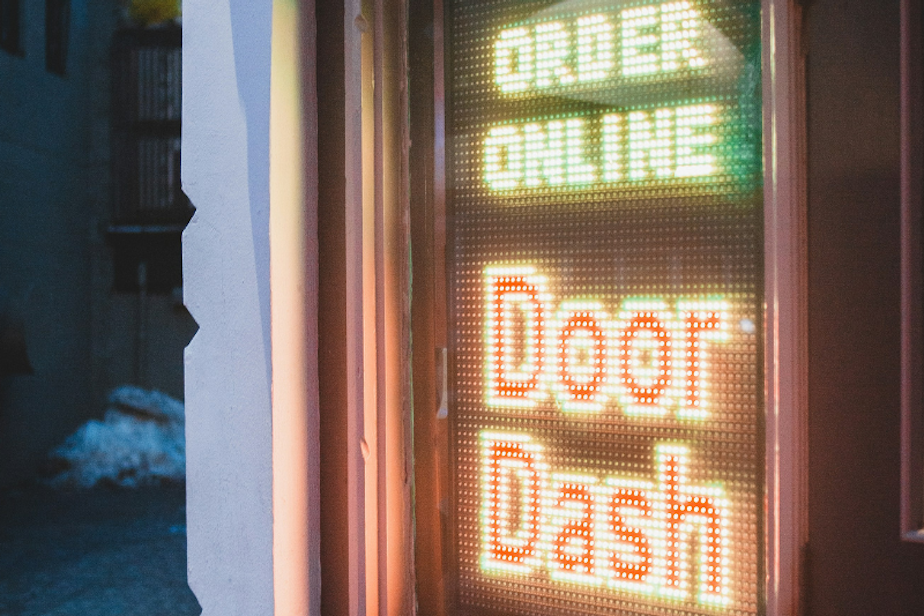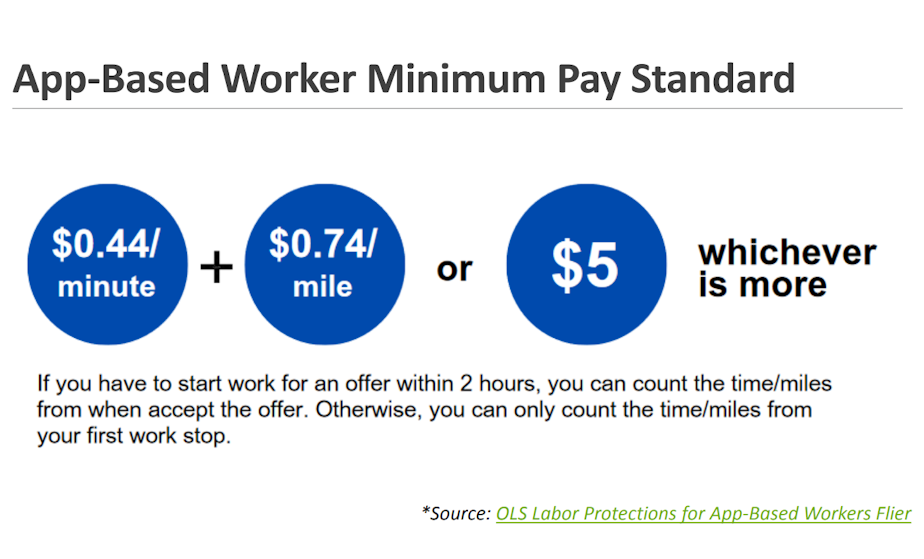Seattle businesses caught in tug of war between app companies and delivery drivers

Just three months into Seattle’s new gig worker minimum wage law, a Seattle City Council committee is considering changing it, prompting another debate over gig worker pay in the city.
“The options as I see on the table right now are do nothing, fix the existing legislation, or repeal the legislation,” Council president Sara Nelson said at the city’s Government, Accountability and Economic Development meeting Thursday, adding that “do nothing” is not an option she supports.
RELATED: Seattle becomes first in U.S. to protect gig workers from sudden 'deactivation'
The new, higher pay for Seattle’s app-based delivery workers took effect in January. In response, some food delivery apps like DoorDash, tacked on a $5 fee. The discussion at City Hall was about what happened next. Some delivery drivers say their pay has improved, while others argue they are losing money.
Another voice emerged this week — small businesses, who complain that the new ordinance has prompted a significant decline in customer orders and has placed them in the middle of a tug-of-war between app companies and delivery drivers.
Sponsored
“We are now 20-40% below where we were last year,” said Becky Yoshitani, who operates Hurry Curry, an eatery in South Lake Union.
Yoshitani said increasing costs for food, rent, and labor have led to the need for more deliveries. Yoshitani blames the new ordinance for “ravaging” their profitability.
In a letter to city leaders this week, Uttam Mukherjee, owner of Spice Waala, echoed that sentiment, stating that “one of the biggest disruptions we have seen in our six years in business is the decline in our delivery business through third-party providers. This decline started in January 2024, which is directly correlated to the App-Based Worker Minimum Payment Ordinance.”
Mukherjee said Spice Waala relies on about 30-40% of sales from delivery orders.
“This year itself, we have seen a 30-40% dip in that delivery business," he said. "It has immediately taken us from barely profitable to unprofitable. This is a huge impact, as the revenue we receive from deliveries helps us sustain our employee living wage and benefits program.”
Sponsored
A DoorDash spokesperson previously told KUOW that Seattle businesses had lost about $1 million in revenue by late February. A recent survey of its members by the Seattle Metropolitan Chamber of Commerce indicates that 97% of the city’s restaurants want the delivery pay ordinance repealed.
Council president Nelson said that’s a big step. Committee members discussed potential amendments and agreed that bringing customers back is an urgent issue.
One idea would be to reduce mileage rate reimbursements to delivery drivers in half. Another would reduce the minimum wage from about $26 an hour to just under $20.

But drivers like Henry Morales say the new pay structure is working for him.
Sponsored
“I probably average, let’s say $25 an hour,” Morales said at the meeting. “Five dollars goes to my car, $5 goes to taxes. I’m left with $15. That’s basically minimum wage.”
Other delivery drivers at Thursday’s meeting commented that the recent slowdown in deliveries has nothing to do with the city’s new law, rather it's a regular, seasonal slowdown that is not specific to Seattle.
But delivery worker Happy Israel disputed that argument.
"This bill was written by workers for workers over years with lots of feedback from many different stakeholders and it is working as intended," Israel said, noting that she only works with Instacart. "It has improved my life ... I've seen my pay from Instacart increase substantially. A year ago, tips were making up about 60% of my income because the Instacart pay was laughable ... last week, tips made up 15%; there are fewer orders, but every order I see is worth taking ... please do not change this law, it just went into effect and it needs more time for all the bugs to be worked out, but it is working."
RELATED: Who's benefiting and who's footing the bill under Seattle's gig worker minimum wage?
Sponsored
In a statement following the meeting, Councilmember Tammy Morales also said more time and additional data is needed before changes are made to Seattle's minimum wage for gig workers. She said information from app companies about fee hikes is also needed to get a full assessment of the situation.
“We should not repeal labor protections every time billion-dollar corporations hike fees on customers without justifying those increases,” Morales said, arguing that corporations are behind the push to repeal the new law. “That would allow corporations to extort our political process.”
In Mukherjee’s letter to the city, he also expressed interest in looking closer at fees and surcharges app companies are now charging, and determining how much is going to the company, and how much is going to drivers. The business owner also proposes capping third-party commissions at 15%, instead of the current 25%.




